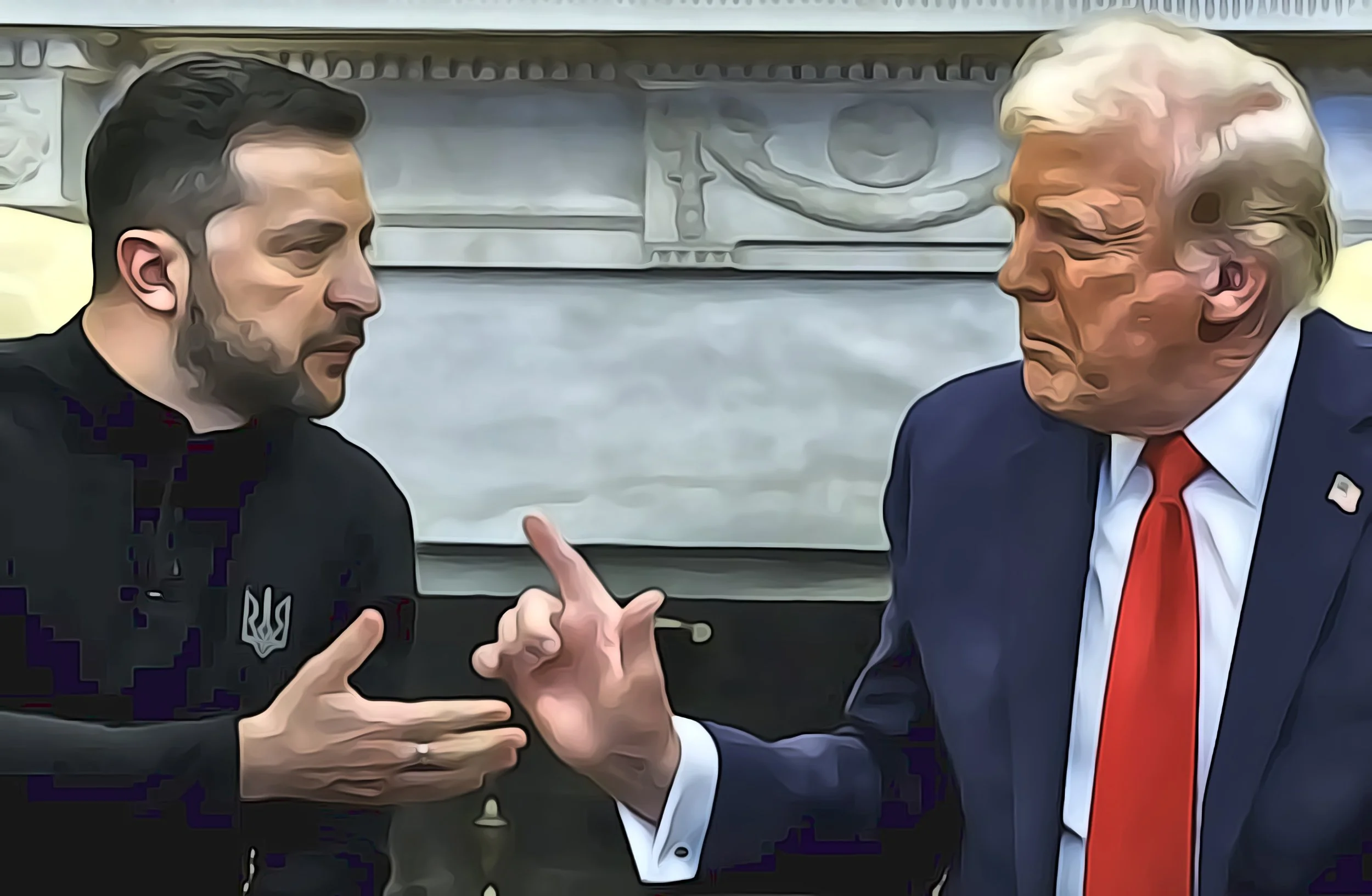Zelensky, U.S. Aid, Religious Freedom Controversies, and Diplomatic Tensions with Trump
Since taking office, Ukrainian President Volodymyr Zelensky has faced mounting allegations of corruption, mismanagement of U.S. aid, religious freedom restrictions, and strained diplomatic relations with key allies. Additionally, growing discontent among Ukrainians has fueled calls for his resignation, with many believing he miscalculated his strategy and attempted to manipulate the U.S., ultimately jeopardizing Ukraine’s future.
Corruption Allegations and U.S. Aid Accountability
Zelensky’s administration has been marred by corruption scandals, with reports revealing offshore financial dealings in the Pandora Papers (The Guardian), questionable appointments of officials with bribery allegations, and misappropriation of funds by high-ranking Ukrainian leaders.
Additionally, the U.S. Department of Defense identified over $8.2 billion in accounting discrepancies related to military aid, raising concerns over whether American taxpayer dollars are being properly utilized (Reuters). A separate Pentagon report also found that over $1 billion worth of weapons sent to Ukraine were not properly tracked, leading to concerns about possible misuse (Axios).
Contentious Meeting with Trump
During a highly publicized Oval Office meeting, Trump and Zelensky discussed a proposed minerals agreement and efforts toward ending the war. Reports indicate Zelensky was initially open to signing the deal and privately assured U.S. officials of Ukraine’s commitment. However, once cameras were rolling, he changed his stance, demanding security guarantees before committing, frustrating Trump. Feeling misled, Trump abruptly ended the meeting, canceling a scheduled lunch and press conference (The Sun).
Zelensky’s Strategic Goals vs. U.S. Interests
Critics argue that Zelensky has sought to use the U.S. to militarily defeat Russia, rather than negotiate peace, which is not in America’s interest given the hundreds of billions already spent. Trump, on the other hand, has sought a swift resolution to avoid prolonged U.S. entanglement in a foreign war (AP News). Many American policymakers believe Ukraine’s insistence on total victory over Russia has made negotiations more difficult and potentially prolonged the conflict unnecessarily (Just Security).
Ceasefire Violations Under Past U.S. Presidents
During the Oval Office meeting, Zelensky attempted to leverage Russia’s history of ceasefire violations as a reason for stronger U.S. security guarantees. He pointed out that Russia had violated 25 ceasefires since 2014, including under Bush, Obama, and Biden. However, Trump countered by highlighting that during his presidency, Putin never violated an agreement (Kyiv Independent).
Trump dismissed Zelensky’s concerns, stating:
"He might have broken deals with Obama and Bush, and he might have broken them with Biden… But he didn’t break them with me."
(Pravda)
This exchange underscored Zelensky’s failed attempt to pressure Trump into providing additional security assurances, further widening the diplomatic rift.
Growing Ukrainian Backlash and Calls for Resignation
Within Ukraine, public frustration with Zelensky has surged following his diplomatic miscalculations with the U.S. Many Ukrainians believe he overplayed his hand, attempting to manipulate Washington’s continued support, only to face an embarrassing fallout with Trump. The failed meeting, combined with ongoing corruption scandals and martial law delaying elections, has led to mounting pressure for Zelensky to step down.
A 2023 national survey found that 78% of Ukrainians held Zelensky directly responsible for corruption within the government and military administration (Business Insider). Opposition leaders, including MP Oleksandr Dubinsky, have openly called for Zelensky’s resignation, arguing that his diplomatic failures could weaken Ukraine’s future standing with its Western allies (Economic Times).
Religious Freedom Controversy
Zelensky has also faced domestic backlash over his restrictions on religious freedoms, particularly his ban on religious organizations affiliated with Russia, which notably targeted the Ukrainian Orthodox Church of the Moscow Patriarchate (UOC-MP). In August 2024, Ukraine’s parliament passed a law banning churches linked to Russia, citing national security concerns. The legislation gave these organizations nine months to sever ties with Russia or face potential shutdowns (The Times).
While some Ukrainians support reducing Russian influence, many see the ban as an infringement on religious freedoms. Critics argue the government is overstepping its authority by targeting religious institutions, further fueling calls for Zelensky’s resignation. Internationally, the U.S. Commission on International Religious Freedom and other human rights groups have voiced concerns over the law’s impact on religious liberties (VOA News).
Call for Another Meeting
Following the disastrous White House encounter, Zelensky has requested another meeting with Trump, expressing renewed interest in signing the minerals deal to secure economic support. However, reports suggest that this deal does not include the security commitments Zelensky initially sought, further complicating Ukraine’s strategic position (Barron's).
Conclusion
The ongoing tensions between Zelensky and Trump highlight the shifting dynamics of U.S.-Ukraine relations. As questions remain about Ukraine’s accountability for U.S. aid, its war strategy, and its economic partnerships, the debate over America’s role in the conflict continues to intensify. Meanwhile, mounting Ukrainian dissatisfaction with Zelensky’s leadership threatens his political future, with opposition figures demanding he resign amid growing disillusionment over his handling of the war, U.S. relations, and religious freedoms.

